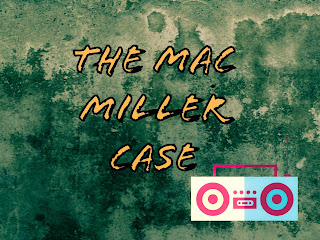Mass Incarceration: The Real Reason it Remains
Mass incarceration in the United States began in the 1980s
and has been sustained because of two reasons.
That is, 1.) Republicans and
Democrats refuse to admit that they are wrong about stringent crime policies,
and 2.) People need to keep their
jobs. Occupational retention is the main
culprit for the sustainment of mass incarceration these days given the two
reasons. The laws could be easily fixed
without unleashing a large number of violent offenders into society, it is
simply not happening because the lawmakers are worried about looking incorrect
in their decision making and it would be one less political strategy that they could
use to scare the public and, in turn, acquire support. It is the jobs that mass incarceration has
created that will not allow for a serious reduction in the number of inmates in
this country. To understand this issue,
you have to think outside of the massive number of employees who work directly
in private and public jails and prisons.
Being more precise, all of the services that correctional facilities
utilize is the main reason why mass incarceration will not go away. Clothing/bedding, medical/social work,
maintenance/construction, transportation/delivery, commissary/canteen, reentry,
communication, and religious services are the reasons why mass incarceration mostly
remains. There are literally millions of
people who attach themselves to the correctional industrial complex to make a
living and to look professional – occupational retention!
These
services should bring thoughts about what justice is really like in the United
States. Much of the legal procedures are
centered on disenfranchising poor people and then taking what little resources
they have in order to acquire a profit and, again, keep a job. The correctional system in the United States
is a web of commerce that thrives off of discrimination and personal desires to
not end up in the gutter. Cops, lawyers,
and corrections professionals know this; so do civilians who are associated
with mass incarceration. Without large
budgets and daily tasks to adhere to, the corrections industry would no longer
be that – an industry! Think about how
many people would lose their jobs and luxuries that they have acquired if mass
incarceration were to have a significant decline. Unemployment rates would soar, political
campaigns would manifest, and billions of dollars spent on building,
maintaining, and running a correctional facility would cease to exist. In some cases, entire towns, external industries,
and contracts would go under and be eliminated.
Occupational retention is the main reason why mass incarceration
remains.
Tax
dollars being spent on these services would have to be diverted to other areas
in our society – which is a good thing.
However, it is also a lot of work, and doing work that would put other
people out of a job is not something that our government leaders want to
do. After all, they rely on support and
donations from the people who indirectly and directly work with Mass
Incarceration, Incorporated. Claims of implementing
justice are bullshit when discussing the majority of offenders and
incarceration. How so? The majority of offenders in correctional
facilities come from low socioeconomic backgrounds and do not have the money or
resources to make the criminal justice professionals put a serious effort into
their conviction; which is another way to have larger profit margins. When wealthy people have criminal justice
intervention in their lives they are able to tie up the criminal justice system
and make it spend more money to acquire a conviction – which makes for a
smaller profit margin when they are convicted and sent to jail/prison. That is, if they are found guilty, which is a
rare occurrence in the United States.
Mass incarceration in the United States is a business that allows other industries
to thrive. Justice? More like an industry that uses poor people
to ensure wealth for its services and employees.


Comments
Post a Comment